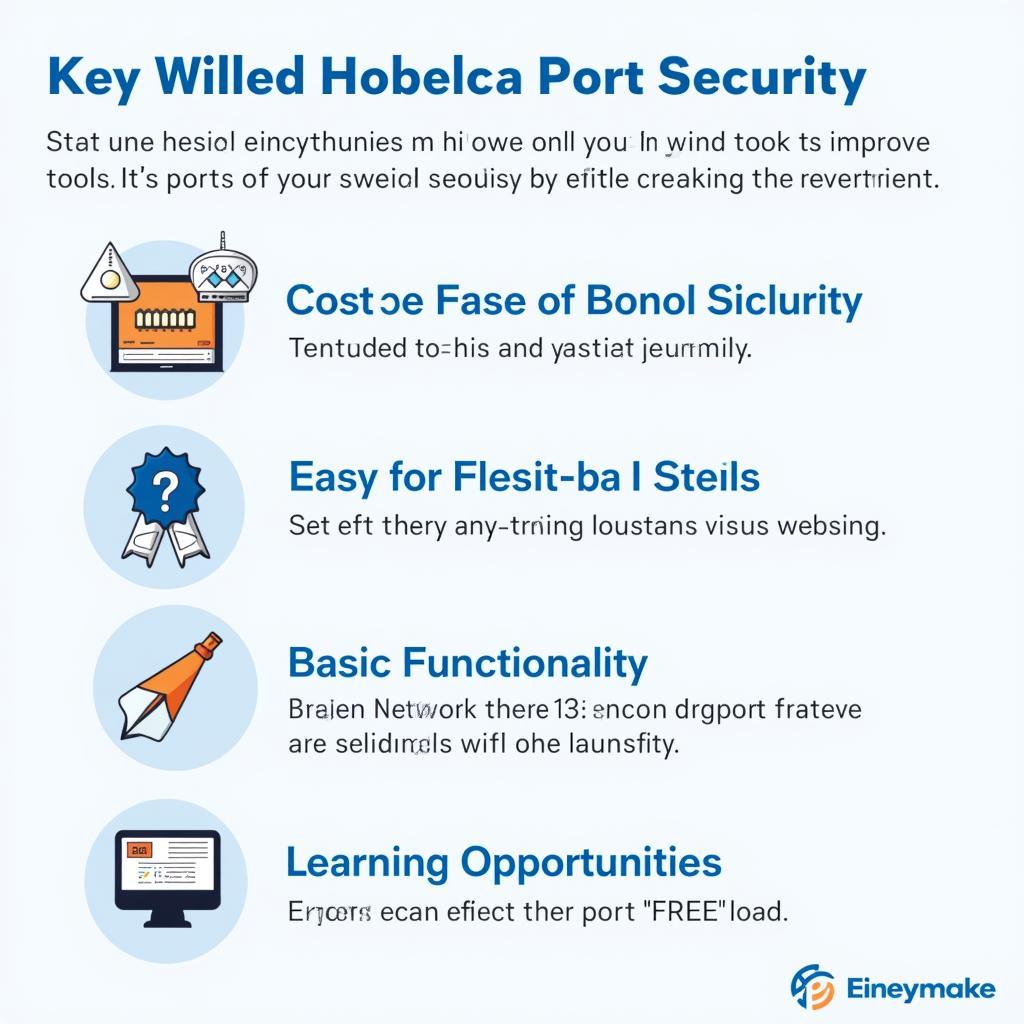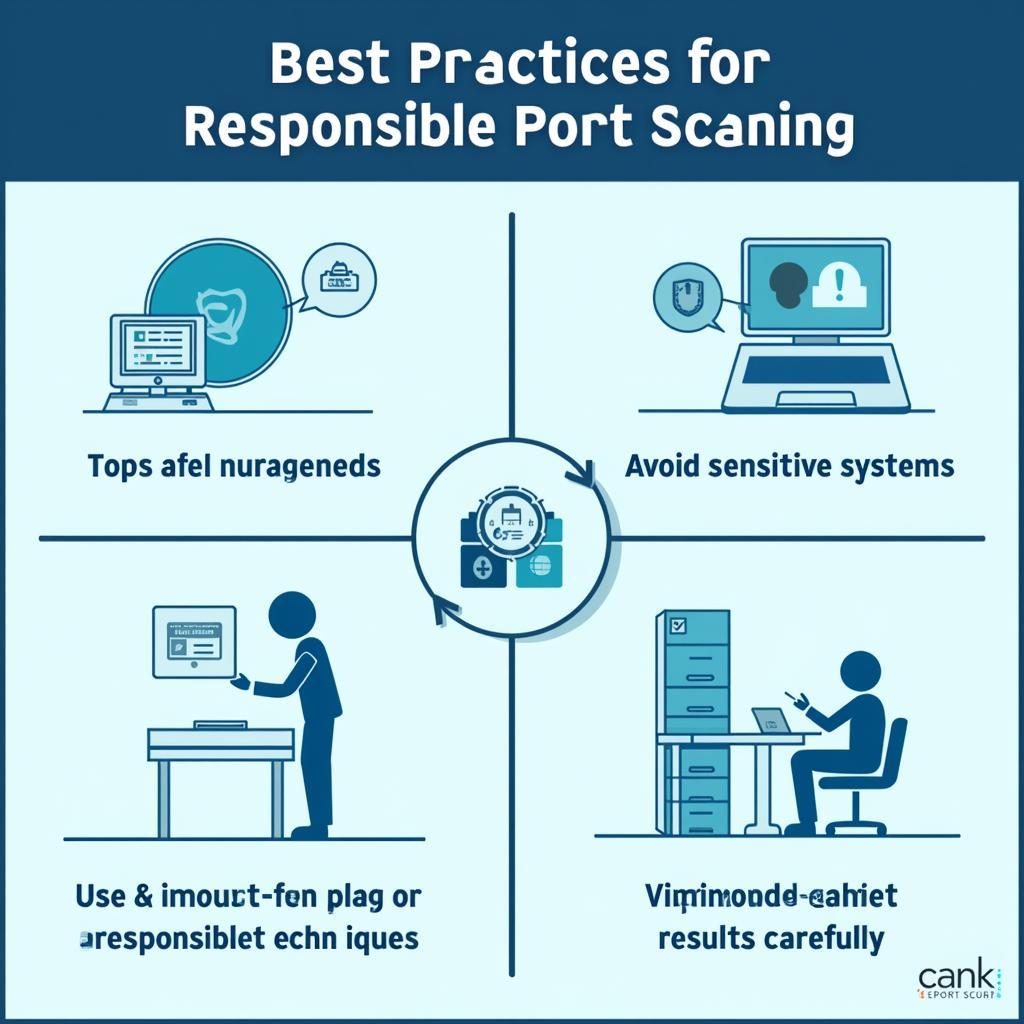Finding a reliable and free port scan tool can be a daunting task. With countless options available, it’s crucial to understand the best practices and choose the tool that aligns with your needs. This comprehensive guide will help you navigate the world of port scanning, providing insights into its functionalities, types, and essential considerations.
Port scanning is an essential cybersecurity technique used to identify open ports on a network or device. By understanding the ports that are open, you can assess potential vulnerabilities and security risks. Port scanning tools are indispensable for network administrators, penetration testers, and security enthusiasts, enabling them to proactively enhance network security.
What is a Port Scan Tool?
A port scan tool is a software application that probes a network or device to identify open ports. These tools utilize various techniques to send packets to specific ports, analyze the responses, and present the results in an easily understandable format.
The primary purpose of a port scan tool is to:
- Discover open ports: This provides a comprehensive view of services running on a target system or network.
- Identify vulnerabilities: Open ports can represent potential vulnerabilities, as attackers can exploit them to gain unauthorized access.
- Verify security configurations: Port scanning can help ensure that firewalls and other security measures are properly configured to block unauthorized access.
Types of Port Scan Tools
Port scan tools can be categorized based on their scanning techniques and functionalities. Some common types include:
- TCP Connect Scans: These tools establish a full TCP connection to each port, providing a reliable method to identify open ports.
- SYN Scans: SYN scans send a SYN packet to each port and analyze the response to determine whether the port is open, closed, or filtered.
- UDP Scans: UDP scans send UDP packets to each port and observe the response to identify open ports.
- Stealth Scans: Stealth scans use techniques to avoid detection by firewalls or intrusion detection systems.
Benefits of Using a Free Port Scan Tool
While numerous paid port scanning solutions are available, free tools offer valuable benefits, particularly for individuals and small organizations. Here are some key advantages:
- Cost-effectiveness: Free port scan tools eliminate the need for costly subscriptions or licenses.
- Ease of use: Many free tools are user-friendly, making them accessible to individuals with limited technical expertise.
- Basic functionality: Free tools often provide essential features for basic port scanning and security assessments.
- Learning opportunity: Using free port scan tools allows you to gain practical experience and explore network security concepts.
 Benefits of Using a Free Port Scan Tool
Benefits of Using a Free Port Scan Tool
How to Choose the Right Free Port Scan Tool
Choosing the right free port scan tool depends on your specific needs and expertise. Consider the following factors:
- Ease of use: Select a tool with an intuitive interface and user-friendly features.
- Scanning techniques: Ensure the tool supports the scanning methods that align with your security requirements.
- Reporting capabilities: Look for tools that generate detailed reports, including open ports, services, and potential vulnerabilities.
- Operating system compatibility: Ensure the tool is compatible with your operating system.
- Community support: Choose a tool with a strong community that provides resources, documentation, and support.
Top Free Port Scan Tools
Numerous free port scan tools are available online, each with its unique features and capabilities. Here are some highly regarded options:
- Nmap: Considered the industry standard, Nmap offers extensive functionality, customization options, and scripting capabilities.
- Angry IP Scanner: This tool provides a quick and efficient way to scan IP ranges for open ports and identify active devices on the network.
- Zenmap: Zenmap is a graphical user interface for Nmap, offering a more intuitive and user-friendly experience.
- SolarWinds Network Performance Monitor: This tool combines port scanning with network performance monitoring, providing comprehensive network visibility.
 Popular Free Port Scan Tools
Popular Free Port Scan Tools
“Choosing the right free port scan tool is like selecting the right tool for a specific job. It’s crucial to understand the needs and characteristics of each tool to maximize its effectiveness.” – John Smith, Cybersecurity Expert.
Best Practices for Port Scanning
When using a free port scan tool, adhere to best practices to maximize its effectiveness and ensure responsible use:
- Obtain permission: Always obtain permission from the owner or administrator of the network or device you are scanning.
- Respect privacy: Only scan networks or devices that you have the authority to scan.
- Avoid scanning sensitive systems: Be cautious when scanning systems that contain confidential or sensitive data.
- Use responsible scanning techniques: Avoid excessive scanning that could disrupt network operations.
- Interpret results carefully: Port scans provide valuable information, but they are not a substitute for comprehensive security assessments.
 Port Scanning Best Practices
Port Scanning Best Practices
Conclusion
Free port scan tools provide valuable resources for individuals and organizations seeking to enhance network security. By understanding the functionality, types, and best practices of these tools, you can effectively assess vulnerabilities, identify open ports, and improve your network security posture.
FAQ
Q: What are the most common ports?
A: Some of the most common ports include port 22 (SSH), port 80 (HTTP), port 443 (HTTPS), and port 25 (SMTP).
Q: How often should I scan my network?
A: Regular port scanning is recommended, at least once a month, to identify any changes or potential vulnerabilities.
Q: What should I do if I find an open port?
A: If you find an open port that should be closed, it’s essential to take immediate action to secure the system or network.
Q: Are free port scan tools reliable?
A: Many free port scan tools are reliable and effective. It’s crucial to select a tool from a reputable source and research its functionality before using it.
Q: Can I use a free port scan tool for penetration testing?
A: While free port scan tools can be used for basic penetration testing, they may not have the advanced features of paid tools.


